

It’s hard to believe the month of June is coming to a close. If you follow me on Instagram, I’m sure you saw this post of my travels to North Carolina at the end of May. I flew solo with the two boys and it was a wild ride to say the least. We scheduled our trip back to North Carolina this year around a two weddings and I decided to come earlier and spend more time here with my family. Logan has had the time of his life being in North Carolina.


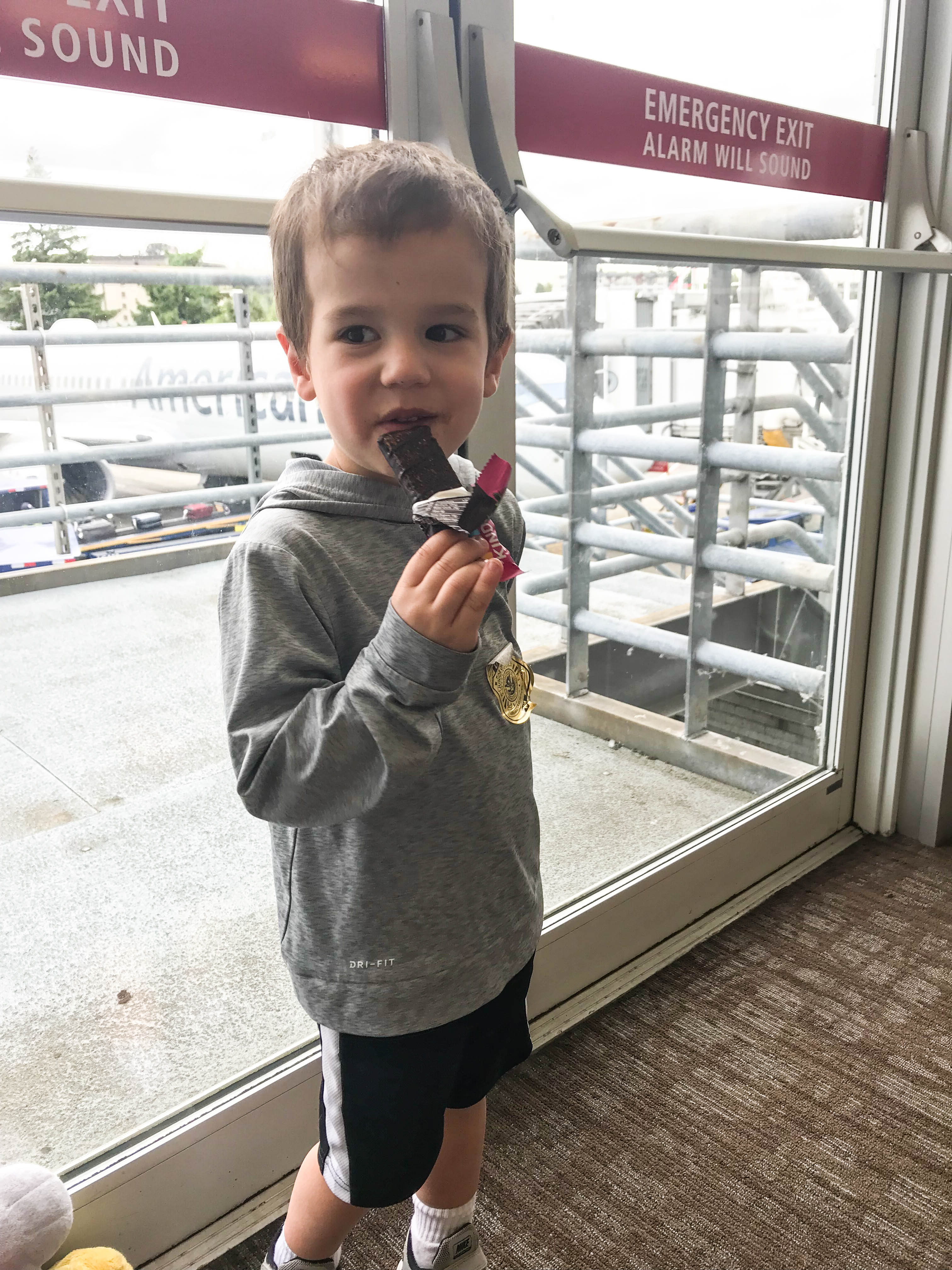

Our life revolves around food — whether that means a snack or a meal. Logan’s carry-on bag during travel was stocked full of KIND snacks to help keep him happy. Once we landed in North Carolina, our first stop was Chick-Fil-A. Ohhh how I miss living near Chick-Fil-A! It’s the only fast food I will allow my kids to have — well except for the Happy Meal my mom gave Logan during our trip. One of our next stops was Black’s Produce Stand. As usual, Logan had a good time like he does everywhere he goes. Local produce always tastes better and I want my kids to know the importance of supporting local farmers.
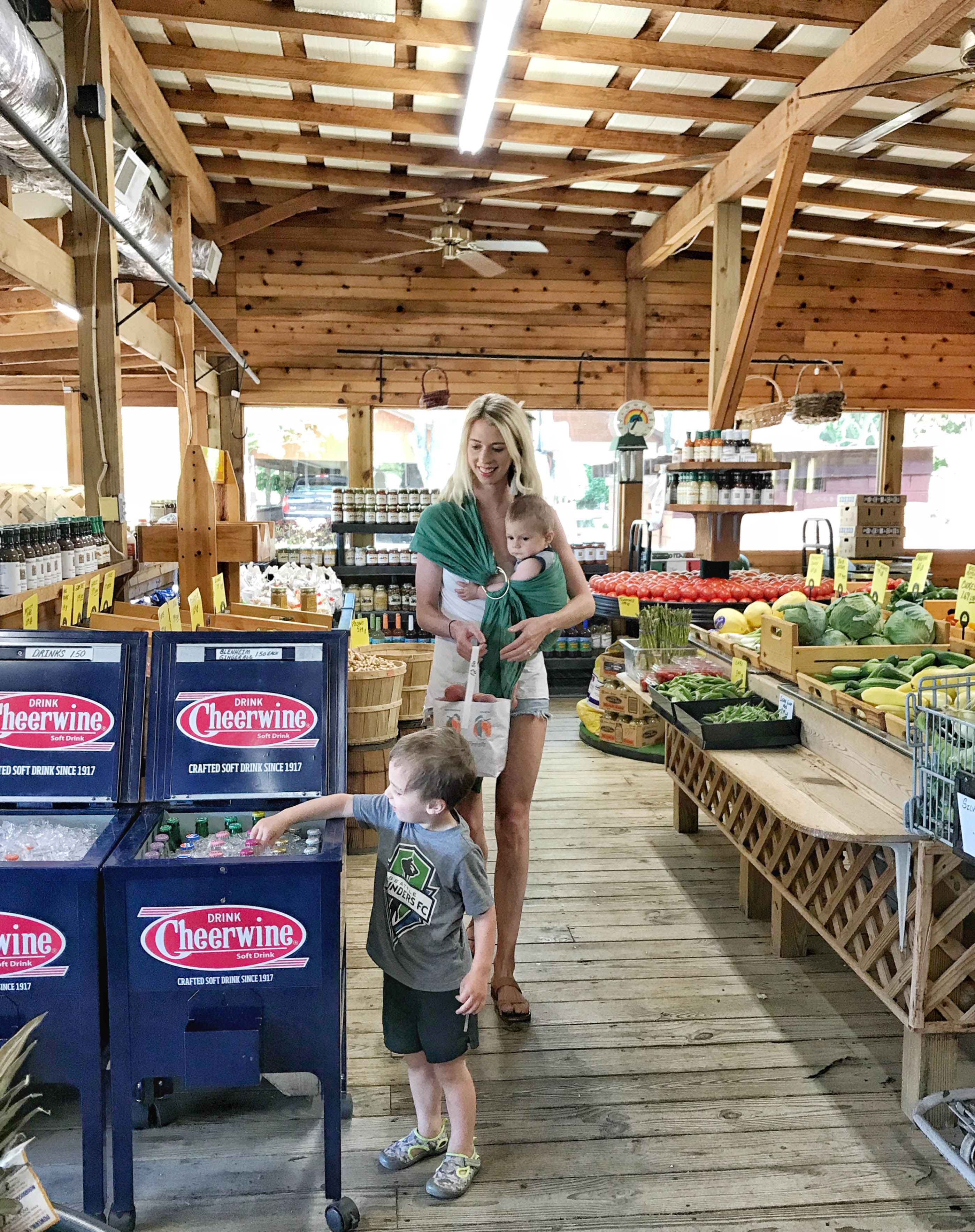
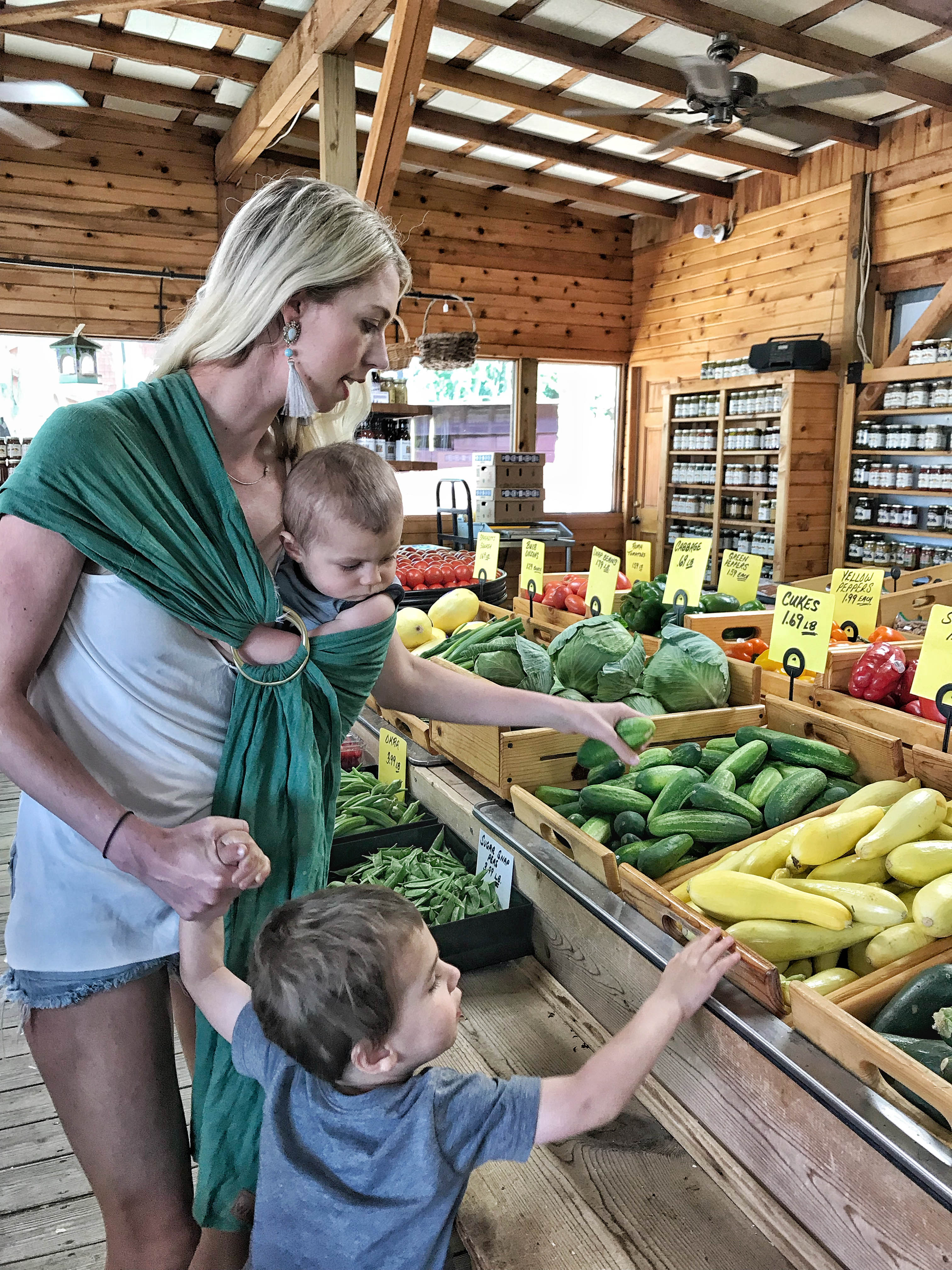
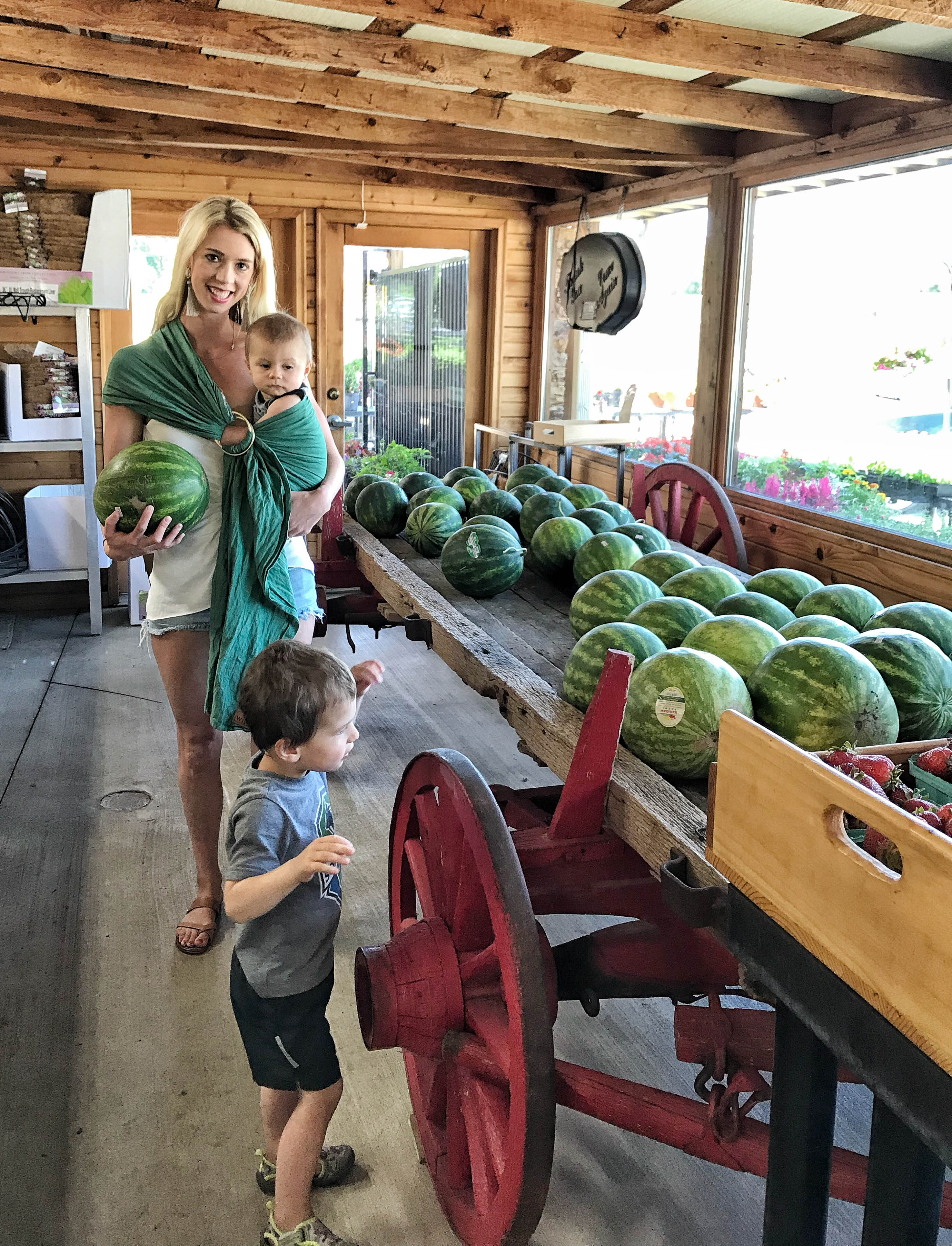
I’m excited to partner with Whole Kids Foundation, a Whole Foods Market nonprofit to help spread the word this month about their “Give Bees a Chance” campaign and importance of honey bees. Teaching my kids about nutrition and where our food comes from is important to me. Honey bees are so vital to many of the foods we consume.
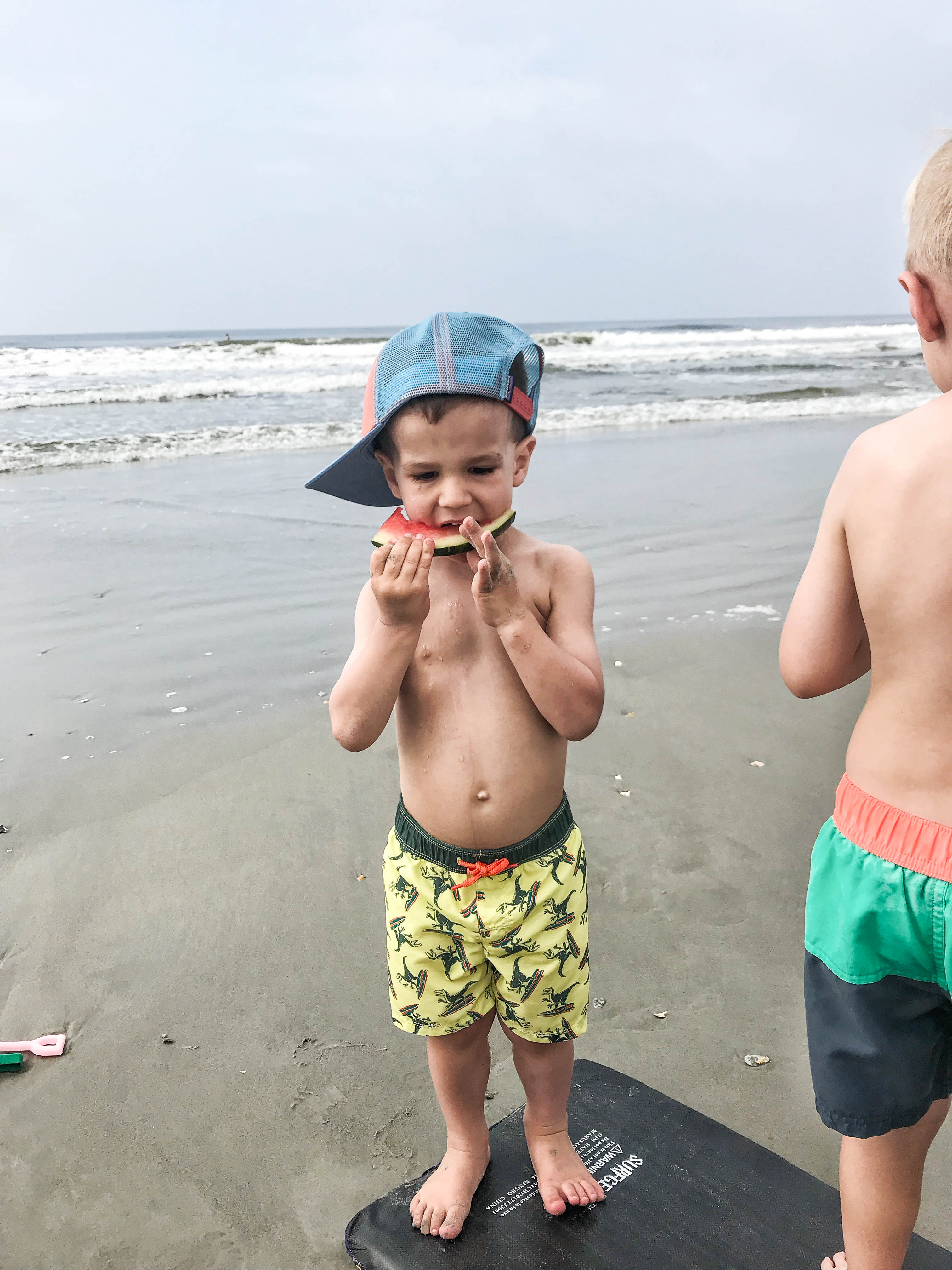

Here are a few fun facts about bees:
- 75% of the top 100 crop species rely on insect pollination. Bees are by far the most productive pollinators, doing 80% of all the pollen work in the world.
- Honey bees are responsible for one in every three bites of food in the United States.
- Honey bees are the only insects that produce something that humans consume.
- Be a responsible consumer: support bees by choosing organic and non-GMO products that do not contain chemicals that are harmful to bees.
- Choosing native and heirloom plant varieties is beneficial to the environment. Hybridized plants are engineered for their looks and produce scant amounts of nectar in comparison.
- Bees are attracted to the sweetest watermelons, where they leave small brown blemishes on the exterior. The more spots you see, the sweeter the melon!
There are few days left to donate to the cause and you can donate to my team here —> Use this link to donate to my team!


